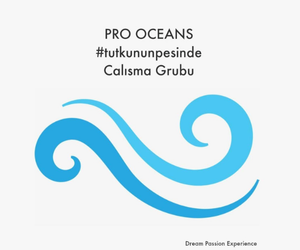But is it really?
When it comes to learning life skills, especially those involving safety, complex reasoning, and personal responsibility, reading still matters, and in many cases, it is the more effective tool.
The Allure of Video Learning
To be fair, video has genuine advantages. It is engaging, dynamic, and often easier to consume. Many learners are visual in nature and benefit from seeing demonstrations. Videos are particularly useful for procedural learning—for instance, watching someone assemble scuba equipment or perform a mask-clear underwater can be far more intuitive than reading step-by-step instructions.
Modern educational videos can also include interactive elements, such as embedded quizzes, branching scenarios, and subtitles in multiple languages. These innovations help tailor content to diverse learners, especially those who struggle with traditional reading.
Video is also incredibly accessible—learners can absorb content while commuting, relaxing, or on a mobile device. For some, that flexibility is a game-changer.
But despite all these strengths, research shows that when learners need to think critically, apply concepts, and retain information over time, video is not always the best tool.
The Case for Reading in Learning
Reading, while often less flashy, demands greater cognitive engagement. You cannot skim a chapter on decompression theory the way you might passively watch a video with background music. Reading forces the brain to slow down, reflect, and process what is being learned. This depth of focus results in stronger comprehension and better long-term retention.
In fact, a 2018 meta-analysis (Castro-Alonso et al.) found that text-based learning is superior to video when the goal is conceptual understanding. In contrast, video is more helpful for acquiring physical procedures or tasks—like tying knots or watching a skill performed.
This matters enormously in contexts like scuba diving, where divers must not only know how to perform a skill but also why it matters and when to apply it. Understanding things like Boyle’s Law, nitrogen absorption, or ascent rate protocols is not just academic trivia—it can be the difference between a safe dive and a medical emergency. These concepts require thoughtful engagement, not just observation.
Focus, Memory, and Mental Discipline
Reading also gives the learner control over the pace of study. You can re-read complex paragraphs, pause to take notes, or stop to look up a term. Video may offer pause and rewind functions, but learners often consume it passively—especially when it is presented in an entertainment style. And because video often combines motion, sound, and visuals, it can overload the brain’s working memory, making it harder to retain key details.
Reading, on the other hand, builds mental discipline. It trains the brain to concentrate, make inferences, and internalize knowledge—skills that are vital in any high-responsibility environment.
A Balanced Approach
Of course, this is not an either-or debate. The best learning environments often use a blended approach: reading for depth and comprehension, video for visual demonstration, and live instruction for real-time feedback. Each mode of learning contributes something unique.
Where some training systems go wrong is in replacing reading entirely with video, assuming that visual learning alone is enough. But in disciplines that involve real-world risk—aviation, healthcare, diving, emergency response—there is no substitute for structured, focused, text-based learning when building foundational understanding.
Learning to Dive: More Than Just Watching
Scuba diving is not just a recreational activity, it is a life skill that demands knowledge, awareness, and decision-making under pressure. While it is helpful to watch how to perform skills, it is essential to understand the underlying principles: what happens to the body under pressure, why we use safety stops, how gas mixes behave, and how to manage emergencies.
That is why many training agencies, including International Scuba Certification (ISC), have chosen to keep reading-based academic modules at the core of their programs. These are complemented by instructor-led sessions and visual demonstrations but never replaced by them. Because producing competent divers means producing thinking divers—and that starts with focus, not just exposure.
Conclusion: Reading Is Still Essential
In a fast-paced world of digital convenience, it is easy to gravitate toward video for everything. But when the goal is to truly learn—to master a life skill that involves safety, decision-making, and personal responsibility—reading is not outdated. It is essential.
- Video can show you what to do.
- Reading helps you understand why.
- And in the end, that understanding is what keeps you safe.
THE SCUBA NEWS Link !
DemirHindiSG 06 Ağustos 2025-15:20





